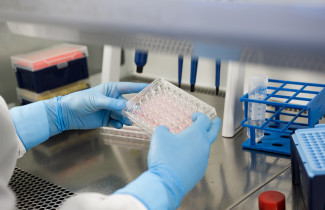In the doctoral thesis of Meike H. Keuters, MSc, at the Faculty of Health Sciences, three promising compounds have been shown to improve the post-stroke outcome in mouse models of ischemic stroke. All three compounds were successfully used to decrease toxic effects of oxidative stress, excessive inflammation, and immune cell invasion into the brain parenchyma. Even though further research is warranted, the compounds show great potential as future therapeutics for patients enduring an ischemic stroke - one of the most devastating diseases of the Modern society.
Ischemic stroke, the leading cerebrovascular accident (CVA), is among the main causes of death and long-term disabilities with adulthood-onset worldwide. Due to the occlusion of a cerebral vessel, a sudden lack of nutrients and oxygen supply occurs in the brain tissue. The brain has a high-energy demand and only a limited ability to cope with energy deprivation, rendering the brain especially prone to ischemic damage. Within minutes of ischemia, the brain’s homeostasis is corrupted, inflammatory processes are initiated, and massive neuronal death occurs, all of which are ultimately leading to irreversible brain damage.
Up to date, intravenous drug-based dissolving of the blood clot (thrombolysis), surgical removal of the clot (mechanical thrombectomy) or their combination are the exclusive treatment options for ischemic stroke. Unfortunately, only a small subset of patients is suitable for either of the treatments. Both options are greatly limited by time, the area of obstruction, and a number of pre-conditions. Additionally, and even though a fast restoration of the blood flow is important and limits extravasation of the infarction area, it also bears great risks. Reperfusion is followed by a so-called ischemia/reperfusion injury (I/R injury). I/R injury enables further pro-inflammatory cascades, causes secondary tissue damage, and accelerates debilitating effects of ischemia.
Therefore, we are in urgent need for new therapeutic strategies to countervail ischemia-induced injuries, as aimed in this dissertation, by altering the inflammatory response and annihilating cell death pathways.
In Keuters’ doctoral thesis, the efficacy of three drug candidates was investigated in the scope of ischemic stroke therapy. In the first study the effects of interleukin 13 (IL-13), an anti-inflammatory cytokine, were determined. The second study was conducted by using ADA-409-052, a condensed benzo[b]thiazine derivative small molecule, and in the third and last study, the researchers investigated the efficacy of a drug holding a valid approval by the European Medicines Agency (EMA) for the use in human patients for other neurodegenerative diseases than stroke.
All of the tested compounds efficiently reduced lesion volumes in different experimental mouse models of ischemia. By utilizing cell culture models of oxidative stress and inflammation, the results showed decreased inflammation, increased polarization of immune cells, especially microglia/macrophages, towards the anti-inflammatory M2-phenotype, and improved cell viability. Importantly, a profound compound-induced phenotypic shift of immune cells from pro- to anti-inflammatory states was detected in the mouse models of stroke, as well as in cell culture models. In addition, and as an important measure in the clinical setting, the sensorimotor abilities of drug-treated ischemic mice were improved when compared with vehicle-treated mice.
Taken together, the chosen compounds depict new promising therapeutics for human ischemic stroke patients. “While we acknowledge that further investigation are needed before going into clinical trials, we would like to emphasize the importance of the achieved promising results,” Keuters says.
The doctoral thesis of Meike H. Keuters, Master of Science, entitled Developing and testing novel treatment strategies in mouse models of cerebrovascular accidents, will be examined at the Faculty of Health Sciences. The Opponent in the public examination will be Professor Nikolaus Plesnila of the Ludwig-Maximilians-University of Munich and the Custos will be Professor Jari E. Koistinaho of the University of Eastern Finland. The public examination of the doctoral thesis will be held in English online on 26 March 2021 starting at 12 noon.



